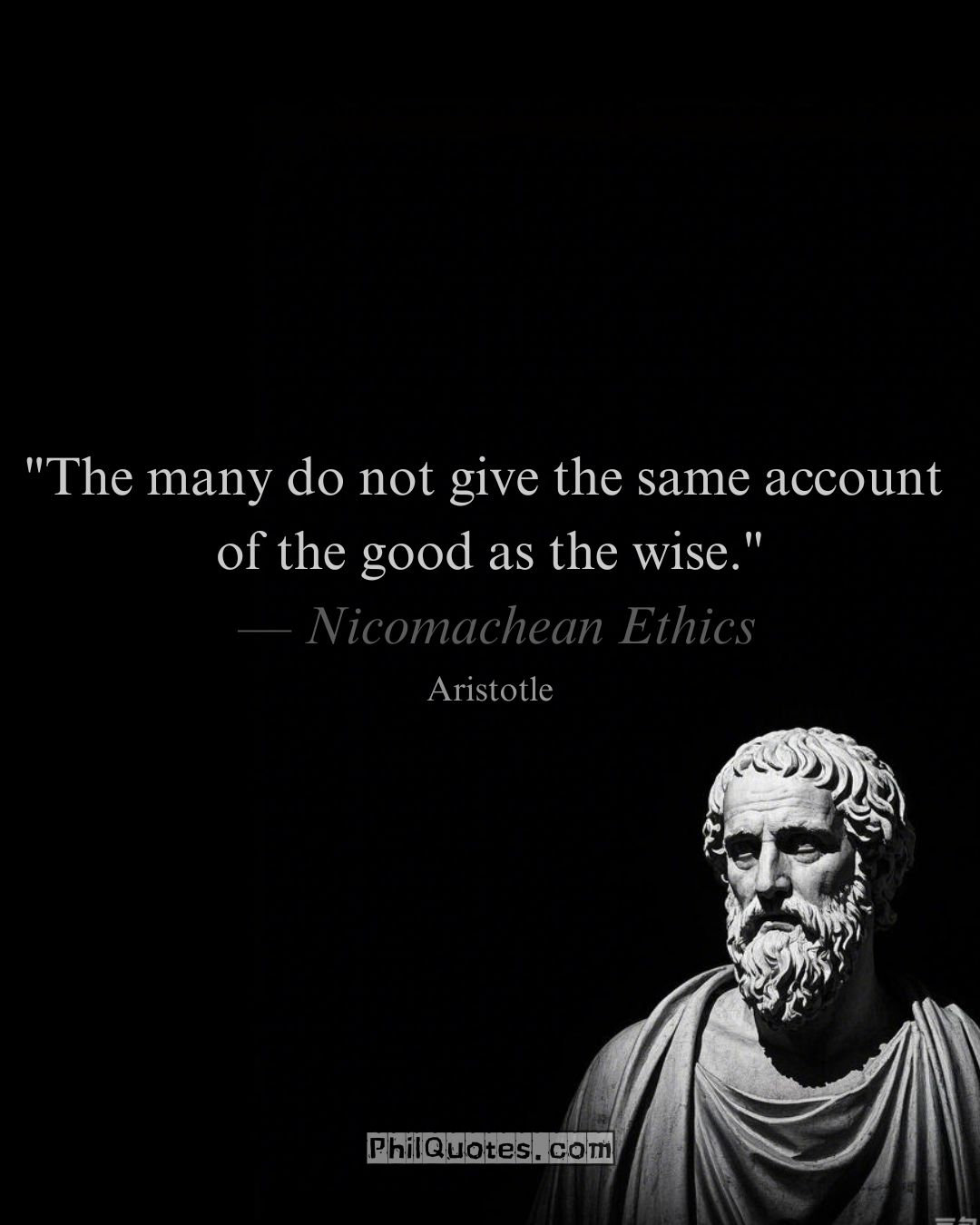
“The many do not give the same account of the good as the wise.”
— Aristotle, Nicomachean Ethics, Book I, Chapter 4
Simple Explanation:
Aristotle contrasts how ordinary people (the many) and philosophers (the wise) define “the good.” While the many chase transient pleasure, wealth, or fame, the wise pursue virtuous habits and rational purpose — the path to eudaimonia (lasting flourishing).
Real-World Connection:
① Shopping Habits →
The many: Buy luxury goods → seek social validation (good as status).
The wise: Invest in books → cultivate knowledge (good as self-improvement).
② Career Choices →
The many: Chase high salaries → prioritize comfort (good as security).
The wise: Choose meaningful work → value impact (good as contribution).
③ Hidden Insight →
Aristotle argues true “good” isn’t subjective — it’s living excellently through courage, justice, and wisdom. What feels good (to the many) ≠ what is good (to the wise).